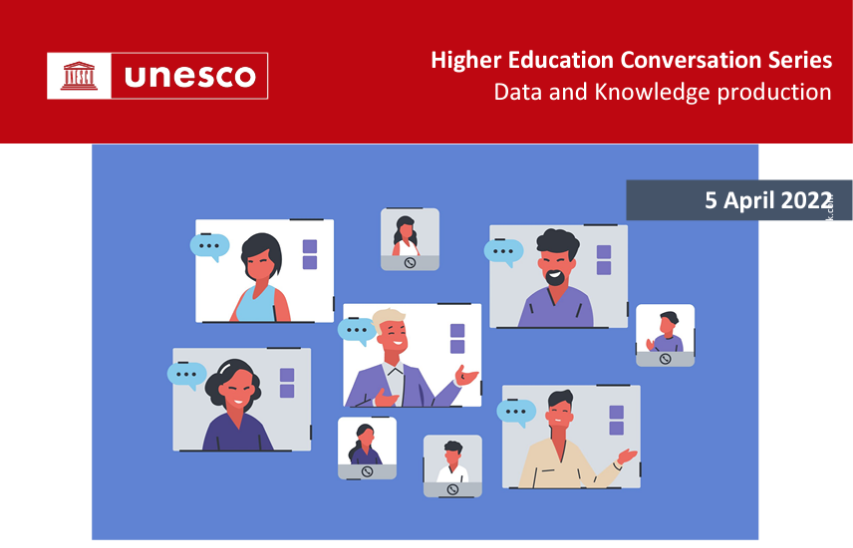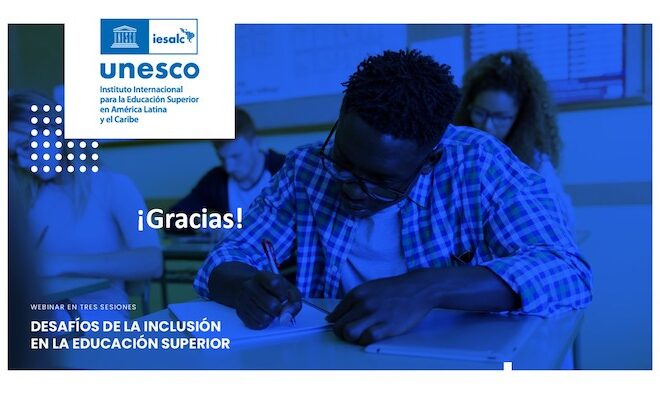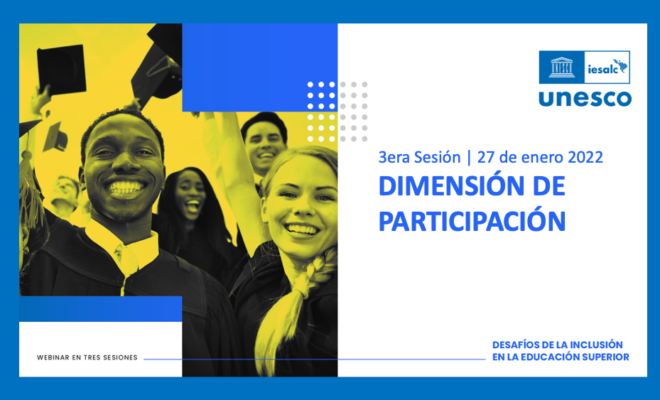Data and knowledge production in higher education | 5 April

This is the sixth in the series of Higher education conversations in the leadup to the 3rd World Higher Education Conference (Barcelona, 18 – 20 May 2022) and to support the operalization of the Global Convention on the Recognition of Qualifications concerning Higher Education. It aims to bring together policy makers and higher education stakeholders to discuss the importance of data and knowledge production in ensuring inclusive, quality higher education for all.
Robust data and knowledge production are key to the development of evidence-based policies, quality improvement and equal opportunities. However, international higher education data faces two key limitations – availability and coverage. While national authorities often have a clear role regarding institutions at the lower, compulsory education levels, the autonomous character of higher education makes that less evident, leading to weaker data.
These gaps also impact the international monitoring of progress towards the SDGs, including the targets related to higher education. It is essential to think about the longitudinal life course of data, looking not only at data within higher education, but also from before and after.
Key questions to be examined:
- What are the data gaps that must be addressed in higher education at international, national and institutional levels?
- What are the consequences of data production for understanding higher education from a lifelong learning perspective?
- How does data production impact or even increase flexibility in the provision of educational services, including digital media?
- What are the institutional mechanisms required to ensure that higher education institutions honour the public interest regarding data and knowledge generation?
- As key knowledge-generating stakeholders in society, what kinds of knowledge should higher education institutions be producing to support the SDGs?
Speakers:
- Said Ould Voffal, Head of the Education Surveys Section, UNESCO Institute for Statistics (UIS)
- Roberta Malee Bassett, Global Lead for Tertiary Education and Senior Education Specialist at the World Bank
- César Guadalupe, Head of Department of Social and Political Sciences, Universidad del Pacífico, Peru
- Michaela Martin, Programme Specialist, UNESCO International Institute for Educational Planning (IIEP)
Moderator:
- Wesley Teter, Senior Consultant, UNESCO Regional Bureau for Education in Asia and the Pacific
Date and time:
- Tuesday, 5 April 2022, 14:00 – 15:00 (CET)
Format:
- Zoom webinar
- Prior registration is required: https://unesco-org.zoom.us/webinar/register/WN_vkgWySUpRHeEGjZvd4Xm-g
Languages:
- English and French
For upcoming discussions, please visit: https://en.unesco.org/news/higher-education-conversations
RELATED ITEMS








